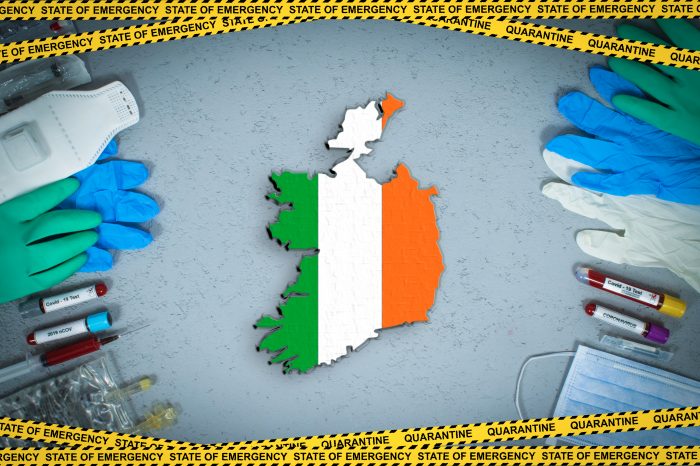Another fence-sitter about to come out?
Along with Bill Cash, John Redwood MP has long been known as a fierce critic of the EU. However, the question of where they stood on the withdrawal issue has been a source of considerable debate. Recently, Bill Cash came off the fence as we reported last month when, at the Alternatives to EU Membership conference organised by David Campbell Bannerman MEP he said “There is no alternative except moving to exit.”
Mr Redwood, who recentlky addressed a near empty House of Commons appears to be inching close to a similar position. Here are a few extracts from what was an extremely well-delivered speech
“It used to be a fundamental principle of the House of Commons that no House of Commons properly elected could bind a successor House of Commons. That was a fundamental part of the British people’s liberties. They have to trust a House of Commons for up to five years to legislate and govern on their behalf. They can do so safe in the knowledge that if we—those in government—do not please, they can dismiss us at the following general election. They can elect a new group of people who can change all that they did not like about the laws and conduct of the Government whom they have just removed.”
“Our membership of the European Economic Community, now the Union, has increasingly damaged, undermined and overwhelmed that essential precept, which was the guarantee of our liberties as the British people. Now there are huge areas of work that are under European law and European control. Those parties that go out from this House into the general election and, for example, offer a better deal on energy, may well come back and discover that what they have offered is quite impossible under the strict and far-reaching rules on energy that now come from the European Union.”
“Yesterday, we did not have time to debate in the House the EU energy package. Within the proposals we were being asked to approve in the Commission’s work programme was a strategic framework for energy policy. In turn, that will spawn an enormous amount of detailed regulation and legislation, making energy a European competence almost completely. More or less anything that the main political parties say about what they wish to do on energy policy during the next five years will be possible only if it just happens that what they wish to do is legal under this massive amount of law and regulation. Much of it is in place already. More will come forward in ever-increasing volumes under the strategic framework and further legal policy. That is but one area.”
“A couple of other big concerns that will be much debated in the election are welfare and border and migration policy. Again, anything that parties say in our general election has to go through the European test. Will changes in benefits that parties wish to see be legal or possible under the European Union? May we not find that we are completely bound by predecessor Parliaments because they have signed up to legal requirements under European law that make it impossible for the House any longer to control our own welfare policy?”
“Yesterday, my right hon. Friend the Minister for Europe encouraged me with his optimism because he said that welfare remained a national UK matter, but there is plenty of evidence that it already is not in many respects. All sorts of policies have been looked at that I am told would fall foul of European law and regulation. It is quite obvious, again, looking at the European Union’s work programme, that it will intensify its activity in this area and make it even more difficult for a national Parliament to express the wish that it wants in its laws on welfare. The same is true of border controls, where we are signed up to the free movement of peoples. That is now being ever more generously interpreted as giving the EU carte blanche and substantial control over border and migration policy throughout the EU.”
“We need to pause over this. I remember the excellent words of my right hon. Friend the Prime Minister in his Bloomberg speech. The Bloomberg speech wisely said that the fount of political authority in any European member state, but certainly in the United Kingdom, rests from the national electorate through the national Parliament.That is still right. We see that in the recent conflicts and rows in a country such as Greece, which is under even more European control than we are by being part of the euro. The Prime Minister reasoned that this country needs to negotiate a new relationship with the EU that recognises that on really important things—I would have thought that welfare, borders and energy were really important things—if necessary, the national Parliament can assert and interpret the will of the British people. There should be some mechanism by which we can then do as we wish, reflecting the will of the people.”
“When I asked {Pat McFadden} whether, on a mighty issue that matters a great deal to the British people, there should be a right for us in this House to reflect their view and legislate accordingly. He said no, there should be no such right, and we have to follow all the rules of the European scheme.”
“We need to negotiate now…an arrangement…for us, the United Kingdom. We must be able to say that we are still a vibrant democracy. We need to be able to say that if something matters a great deal to the British people and if it has been approved in a general election, this House can take action even if it means disagreeing with the rules of the European Union. By all means, we can try to negotiate an arrangement case by case, but where we cannot do that, we need an override. We need the right to say, “This thing matters too much to our democracy.” If we do not have that very simple change, we no longer have in this country a successful and vibrant democracy that can guarantee stability and guarantee to deliver what the British people want.”
“I am pleased to have been part of the forces in this country that kept us out of the euro, which meant that we missed the worst—this country has a reasonable economic recovery that is completely unrelated to the continent, with its long recession and deep troubles in the southern territories—but as I see my country sucked into common policies on energy, borders, foreign affairs and welfare, I think that we might be sucked in too far and have exactly the same problems on those issues that the euro area is already experiencing on the central matter of economics.”
“I urge Ministers to take this seriously and to re-read the words of the Bloomberg speech. I urge the Opposition to join us, because they aspire to govern this country. One day they may come up with really popular policies and be elected on that basis, and what a tragedy it would be if they discovered that they could not enact those policies because they were illegal under European law. That could happen just as much to the Labour party as to the Conservative party.”
“If there is to be trust between politicians and the people, the national Parliament must be able to deliver when the people speak. We are in danger of that no longer being true.”








